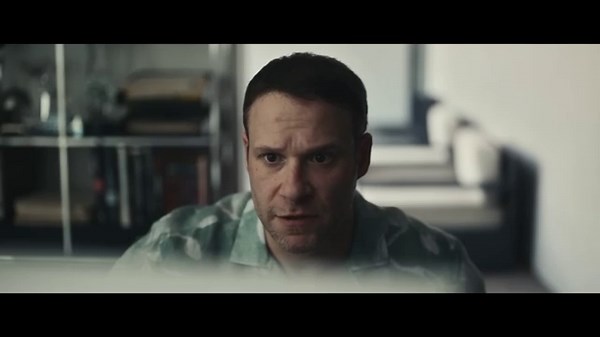Dano has the best fit for the role of the YouTuber who took on Wall Street in I, Tonya, director Craig Gillespie’s fiery homeless drama.
In late 2020 and January 2021, a motley organization of small investors, loosely led by a nerdy YouTuber and a Reddit poster calling itself Roaring Kitty, emphatically attacked the Wall Street elite. A rush of cash and a frenzy over the inventories of GameStop (a long-suffering chain of American video game stores) have in the past affected the value of inventories, with brutal consequences for several multi-billion dollar hedge funds. It was presented as a response to the cynical practice of short selling (essentially when a trader bets on the fall of a company) and as an occasion that presaged the democratization of the stock market, until now an industry strongly strengthened and controlled by the ultras. -Rich and ultra privileged.
Today, director Craig Gillespie (I, Tonya, Cruella) tackles the subject with a vigorous headline docufiction starring an affable Paul Dano as Keith Gill, aka Roaring Kitty. There’s an animated hustle and bustle in Dumb Money, which effectively brings a combination of a multitude of disparate supporting characters and parallel threads of the story. But this is precisely the kind of film one expects from Hollywood, itself a heavily strengthened industry controlled by the ultra-rich and ultra-privileged. It is a story of the triumph of the oppressed that gives some semblance of appeasement, but conveniently ignores the fact that there have been few genuine and lasting changes. Those who have still have them; The homeless cling to a taste of what could have been.
Gillespie has already proven to be a director with a knack for harnessing the electrical power of an ongoing cultural phenomenon and then presenting the story in the form of temporarily available sound clips. He deftly dispelled the mess of contradictory voices: Tonya Harding’s ice skating scandal with wit and enthusiasm but without much depth; He then did the same, albeit for several episodes, with Pam.
While this story doesn’t have the pop cultural appeal of celebrity names, the film breaks down the GameStop short in the kind of language that even stock market illiterates (me, for example) can understand, and provides us with a richly drawn cast of characters to follow. And if there’s a striking impertinence in Adam McKay’s manner in the narrative (his 2016 Oscar winner, The Big Short, is an apparent reference; possible musical choices tend toward squeaky hip-hop and the opposite), this is countered through the attention to detail of the characters and the quality of the performances on every level.
The most notable of these is Dano, an actor who, with his striking but slightly potato face, fits perfectly into uncool male roles like Keith. Dano looks at the cheeky geek of a guy who surrounds himself with a slightly ironic kitsch based on cats. Son Keith is a soft-spoken fool whose boundless enthusiasm exceeds his ability to convey words. Pete Davidson is also great, as Keith’s delinquent brother Kevin, a DoorDash delivery driver who spends much of his free time smoking weed and trolling his older brother. online. And alongside Marcus (Anthony Ramos), a tired GameStop employee, and Jenny (America Ferrera), an exhausted nurse, we have two unfortunate dreamers to cheer on.
It’s fair to say, however, that aside from the Wall Street actors (a sweaty, terrified Seth Rogen; a treacherously slippery Sebastian Stan), the cast of characters conscientiously decided to be sympathetic and sympathetic. And, judging by the scroll of rudeness, cheerful Reddit messages to the emoji, and borderline score on the screen, it’s unlikely to be entirely representative of Keith Gill’s fan base.
But while the film would have arguably disfigured his portrayal of users of the r/wallstreetbets subreddit (the site on which Keith shared the main points of his investment portfolio), it is undeniably revealing about the insidious influence of social media as a whole. , Dumb Money would possibly not be as revealing about money markets as it is about the convening strength of the Internet. Capture the network of online whispers that constitutes a “meme stock”; Set at the intersection of the Venn diagram where fundamental human greed meets the driving fervor of virtual groupthink; At least at this point, the film is surely about money.

